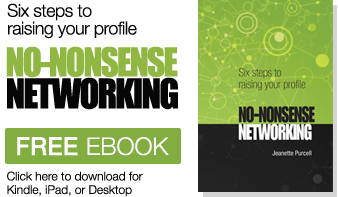
Showing all pages regarding communication.
5 reasons why networking matters
There are many reasons why you should aim to be an effective networker. It’s good for you, it’s good for your career and it’s good for your business. What’s more, if you approach networking with the right attitude you will enjoy the activity and want to do it more. Here are my top five reasons why you should aim to be a great networker:
Reason #1 – We do business with people we like and trust
It’s popular to believe that buying has become a depersonalised activity and that the hiring of staff is based purely on an objective assessment of a candidate’s skills. But the evidence is that, even today, most transactions in business are about relationships. We do business with people we like and trust. You can achieve a certain amount through marketing and advertising campaigns and it is possible for selling to be a completely anonymous business, but at some stage your customer, client or prospective employer is likely to come face to face with YOU. Their decision to buy or hire will be influenced by a range of factors which, at some level, will almost certainly include how much they like and trust you. Relationships are at the heart of any successful business. And so it is important to invest time in making connections, building relationships and maintaining those connections over time.
Reason #2 – Word of mouth marketing really works
I have been running a business for several years and ALL of my clients have come to me through word of mouth. Now, that’s not unusual for my type of business but all companies, regardless of size or industry, rely to some extent on word-of-mouth marketing.
Surveys into the impact of online marketing show that peer recommendation is the most trusted form or advertising, whereas online search, banner advertising and other ads are among the least trusted (NIELSEN – Global Online Consumer Survey – July 2009). Even with the explosion of online review applications (eg, Yelp, Google, Urbanspoon), research clearly demonstrates that word of mouth—product recommendations made by family, friends, work colleagues, or neighbours —is still the most effective way to win new customers. (The Harris Poll #74, June 3, 2010). At the same time, many people fail to recognise the value of customer referrals and the power of networking as a form of word-of-mouth marketing.
Reason #3 – Being good at your job is not enough
Like it or not life is not a meritocracy. The truth is that your skills, qualities and experience are likely to go unnoticed unless you are prepared to promote yourself. This means seeking opportunities to communicate what you have to offer and your career aspirations. I’m not talking about trotting out a sales pitch to everyone you meet, but I am suggesting that a more proactive approach to advancing your career is required. And this involves building a useful supportive network.
Reason #4 – Well connected people are ‘in the know’
The surest way to pick up on a new opportunity – whether it’s a new client, new job or changes in your market – is to be well connected. How many times have you heard about a job vacancy or a potential new project through a friend or work colleague? The grapevine is a wonderful and powerful communication channel and you should use it. By developing your networks you not only stand a better chance of knowing what’s going on but you are also more likely to be remembered when one of your connections wants something that you offer. Networks are vital as a means of sharing knowledge and information. What’s more, a good networker who enjoys meeting and learning about other people will broaden their outlook and develop a useful body of skills and knowledge, making them an interesting person to know.
Reason #5 – Networks are a valuable source of support
Networking is not just about finding opportunities and advancing your own interests. A good network is one that is based on give and take, trust and respect. There are people in my network who I know I can ask for help when I am thinking through a new idea or dealing with a particularly difficult problem. And they know I will do the same for them in return. If you build your network in the right way, you will find that it can be a valuable source of support and advice.
This is an excerpt from Jeanette Purcell’s “No-Nonsense Networking” – 6 steps to raising your profile.
Lessons in responsible leadership
Developments in the phone hacking inquiry raise more questions about the moral responsibility of leaders. In fact this news item, coming after a succession of scandals involving financial institutions and corrupt MPs, will ensure that the debate around business ethics and corporate responsibility will continue for some time.
I am intrigued by Rebekah Brooks’ statement that she had “no knowledge” of the phone hacking taking place at the News of the World when she was in charge of the paper. It might be argued that leaders of large complex organisations can’t be expected to know everything. Max Clifford, probably the UK’s best known publicist and now in jail, came to the defence of Ms Brooks saying she may not have known every detail about day to day goings on in the company. To some extent this is true. We all know of disastrous bosses who attempt to micro manage, not trusting managers to get on with the job and attempting to control everything. Such an approach to leadership just doesn’t work. As a boss you can’t know and do it all – without effective delegation and trust the business simply won’t move forward. Furthermore, staff working for a control freak will quickly lose any commitment or motivation to do a good job.
So where do you draw the line? How can leaders make it their business to know what’s going on in their organisation while at the same time allowing others the right amount of discretion and autonomy? Well, there are many ways of keeping your ear to the ground so that you don’t lose touch with the day to day: regular meetings and chats with staff (formal and informal); asking questions now and again, especially when something doesn’t ‘feel right’; being quite clear with others about what you do and don’t need to know; effective communication processes; and so on.
But a more fundamental solution lies in the articulation and communication of values and then firmly embedding these in the organisation. Responsible management involves a commitment to transparency and honesty. Leaders should be clear about their own values, their expectations of others and preferred ways of working. I have worked with businesses where staff are actively involved in the identification and communication of values – it’s not always possible but it’s the best way of getting ‘buy in’ and real commitment. Once established, these values become central to everything the business does, from the way customers are treated to the recruitment and promotion of staff. Clear values help to inform decision-making. Where risky or controversial decisions are concerned, reference to values can often help identify the ‘right’ solution.
I don’t know whether Rebekah Brooks or News Corporation have ever given a thought to their values or moral code. Somehow I doubt it. If they had, they wouldn’t be in such a mess now. More importantly many people, including Milly Dowler’s family, might have been saved so much unnecessary distress.
Do we really need appraisals?

I spoke to a Chief Executive recently who was leaving the position they had held for over ten years to embark on a portfolio career. “I will miss many things about my job” he told me “but I won’t miss appraisals.” Now, every good Chief Executive is expected to support and embrace the performance appraisal process. We are told that appraisals are an essential part of performance management. They provide an opportunity to evaluate an individual’s performance and also to consider their development and training needs. The existence of a comprehensive appraisal system is normally thought to reflect well on employers, indicating their commitment to developing their staff and their compliance with best practice in performance management. Why then did this Chief Executive hold such a negative view about something that is universally considered to be a ‘good thing’?
I too have experience of performance appraisals in a range of organisations and, although I appreciate the rationale for appraisals, I too have some reservations about their value.
Appraisals are often considered to be a time-consuming chore by both the line manager and the person being appraised. A great deal of form filling is normally required both before and after the appraisal and the meeting itself can take more than two hours. For one line manager with ten or more staff the amount of time involved to complete the process can easily exceed thirty hours. And what is the return on this considerable investment of time?
Line managers often lack the skills required to conduct an appraisal. The process requires them to listen, ask relevant questions, provide clear feedback, address performance problems, and so on. All these skills need to be learnt and practised – not all line managers have that opportunity. And it is not easy for a manager to both give encouragement and raise performance issues at the same meeting. Yet most appraisals require managers to adopt these apparently contradictory attitudes – is it any wonder that the person being appraised often leaves the meeting not knowing whether they’ve been praised or admonished?
The mistake that companies often make is to assume that the implementation of a performance appraisal process represents good performance management. This is not the case. Good performance management requires regular and consistent communication with employees (at the corporate and individual level) about what is expected from them, how their performance will be assessed and how well they are doing against those measures. Line managers should recognise their responsibility for giving clear direction to employees. They should be communicating with their staff every day, encouraging and a two-way dialogue so that employees are able to raise concerns, put forward suggestions and ask for support. I often think that, if line managers were better at leading, motivating and managing the performance of their staff, the annual appraisal meeting would be irrelevant and unnecessary.
“If we stopped doing appraisals I wonder if anything would change” mused my CEO friend. I wonder.
Privacy Policy
What is this Privacy Policy for?
This privacy policy is for this website www.jeanettepurcell.com and served by Jeanette Purcell Associates and governs the privacy of its users who choose to use it.
The policy sets out the different areas where user privacy is concerned and outlines the obligations & requirements of the users, the website and website owners. Furthermore the way this website processes, stores and protects user data and information will also be detailed within this policy.
The Website
This website and it’s owners take a proactive approach to user privacy and ensure the necessary steps are taken to protect the privacy of its users throughout their visiting experience. This website comply’s to all UK national laws and requirements for user privacy.
Use of Cookies
This website uses cookies to better the users experience while visiting the website. Where applicable this website uses a cookie control system allowing the user on their first visit to the website to allow or disallow the use of cookies on their computer / device. This complies with recent legislation requirements for website’s to obtain explicit consent from users before leaving behind or reading files such as cookies on a users computer / device.
Cookies are small files saved to the users computers hard drive that track, save and store information about the users interactions and usage of the website. This allows the website, through it’s server to provide the users with a tailored experience within this website.
Users are advised that if they wish to deny the use and saving of cookies from this website on to their computers hard drive they should take necessary steps within their web browsers security settings to block all cookies from this website and it’s external serving vendors.
This website uses tracking software to monitor it’s visitors to better understand how they use it. This software is provided by Google Analytics which uses cookies to track visitor usage. The software will save a cookie to your computers hard drive in order to track and monitor your engagement and usage of the website but will not store, save or collect personally identifiable information. You can read Google’s privacy policy here for further information [http://www.google.com/privacy.html ].
We also use Google’s Interest-based advertising and audience data to monitor visitors’ age, gender and interests. This too is anonymised and used purely to reveal broad insights about our audience.
You can edit the personal information used by Google Analytics or opt out of sharing this information entirely by following this link. Alternatively, you can download a plugin for your browser and opt out of Google Analytics entirely.
Other cookies may be stored to your computers hard drive by external vendors when this website uses referral programs, sponsored links or adverts. Such cookies are used for conversion and referral tracking and typically expire after 30 days, though some may take longer. No personal information is stored, saved or collected.
Contact & Communication
Users contacting this website and/or it’s owners do so at their own discretion and provide any such personal details requested at their own risk. Your personal information is kept private and stored securely until a time it is no longer required or has no use, as detailed in the Data Protection Act 1998. Every effort has been made to ensure a safe and secure form to email submission process but advise users using such form to email processes that they do so at their own risk.
This website and it’s owners use any information submitted to provide you with further information about the products / services they offer or to assist you in answering any questions or queries you may have submitted. This includes using your details to subscribe you to any email newsletter program the website operates but only if this was made clear to you and your express permission was granted when submitting any form to email process. Or whereby you the consumer have previously purchased from or enquired about purchasing from the company a product or service that the email newsletter relates to. This is by no means an entire list of your user rights in regard to receiving email marketing material. Your details are not passed on to any third parties.
Email Newsletter
This website operates an email newsletter program, used to inform subscribers about products and services supplied by this website. Users can subscribe through an online automated process should they wish to do so but do so at their own discretion. Some subscriptions may be manually processed through prior written agreement with the user.
Subscriptions are taken in compliance with UK Spam Laws detailed in the Privacy and Electronic Communications Regulations 2003. All personal details relating to subscriptions are held securely and in accordance with the Data Protection Act 1998. No personal details are passed on to third parties nor shared with companies / people outside of the company that operates this website. Under the Data Protection Act 1998 you may request a copy of personal information held about you by this website’s email newsletter program. A small fee will be payable. If you would like a copy of the information held on you please write to the business address at the bottom of this policy.
Email marketing campaigns published by this website or it’s owners may contain tracking facilities within the actual email. Subscriber activity is tracked and stored in a database for future analysis and evaluation. Such tracked activity may include; the opening of emails, forwarding of emails, the clicking of links within the email content, times, dates and frequency of activity [this is by no far a comprehensive list].
This information is used to refine future email campaigns and supply the user with more relevant content based around their activity.
In compliance with UK Spam Laws and the Privacy and Electronic Communications Regulations 2003 subscribers are given the opportunity to un-subscribe at any time through an automated system. This process is detailed at the footer of each email campaign. If an automated un-subscription system is unavailable clear instructions on how to un-subscribe will by detailed instead.
External Links
Although this website only looks to include quality, safe and relevant external links users should always adopt a policy of caution before clicking any external web links mentioned throughout this website.
The owners of this website cannot guarantee or verify the contents of any externally linked website despite their best efforts. Users should therefore note they click on external links at their own risk and this website and it’s owners cannot be held liable for any damages or implications caused by visiting any external links mentioned.
Adverts and Sponsored Links
This website may contain sponsored links and adverts. These will typically be served through our advertising partners, to whom may have detailed privacy policies relating directly to the adverts they serve.
Clicking on any such adverts will send you to the advertisers website through a referral program which may use cookies and will tracks the number of referrals sent from this website. This may include the use of cookies which may in turn be saved on your computers hard drive. Users should therefore note they click on sponsored external links at their own risk and this website and it’s owners cannot be held liable for any damages or implications caused by visiting any external links mentioned.
Social Media Platforms
Communication, engagement and actions taken through external social media platforms that this website and it’s owners participate on are custom to the terms and conditions as well as the privacy policies held with each social media platform respectively.
Users are advised to use social media platforms wisely and communicate / engage upon them with due care and caution in regard to their own privacy and personal details. This website nor it’s owners will ever ask for personal or sensitive information through social media platforms and encourage users wishing to discuss sensitive details to contact them through primary communication channels such as by telephone or email.
This website may use social sharing buttons which help share web content directly from web pages to the social media platform in question. Users are advised before using such social sharing buttons that they do so at their own discretion and note that the social media platform may track and save your request to share a web page respectively through your social media platform account.
Shortened Links in Social Media
This website and it’s owners through their social media platform accounts may share web links to relevant web pages. By default some social media platforms shorten lengthy url’s [web addresses] (this is an example: http://bit.ly/zyVUBo).
Users are advised to take caution and good judgement before clicking any shortened url’s published on social media platforms by this website and it’s owners. Despite the best efforts to ensure only genuine url’s are published many social media platforms are prone to spam and hacking and therefore this website and it’s owners cannot be held liable for any damages or implications caused by visiting any shortened links.
Resources & Further Information
- Data Protection Act 1998
- Privacy and Electronic Communications Regulations 2003
- Privacy and Electronic Communications Regulations 2003 – The Guide
- Twitter Privacy Policy
- Facebook Privacy Policy
- Google Privacy Policy
- Linkedin Privacy Policy
- Mailchimp Privacy Policy
Free Website Privacy Policy written by Jamie King Media – SEO Pembrokeshire © 2013 – v.2.0 April 2013
JPA Master Class Series
The JPA Masterclass Series has ended for this year.
Overview
You don’t have to be an extrovert or the life and soul of the party to have personal impact. But any leader will tell you that success in business requires a high level of confidence, polish and professionalism. This personal impact Master Class will give you the skills and techniques you need to present yourself in a positive way and to become a confident networker. Delivered by Jeanette Purcell, international leadership specialist and experienced public speaker, the course is practical and fun. Jeanette’s promise is that you will leave the Master Class with a range of tools and ideas that can be applied immediately and will make a positive difference to the way you work.
Who should attend?
This Master Class is for managers and senior partners working in large or small organisations, consultants and anyone who needs to promote themselves externally or internally. If you network, talk to clients or simply need to make a more positive impact with people, you will benefit from this Master Class.
What does it cover?
- Understanding the power of networking and the benefits of building better business connections.
- Myth-busting. Overcoming obstacles and challenging common perceptions of networkingskills
- Maximising your personal impact. Walking and talking with confidence.
- Presenting yourself in a powerful, memorable and positive way
- Networking ‘know-how’. The tools and techniques that help you to build better networks.
“My objective is to persuade people that the investment they make in developing their networks will result in tangible rewards and benefiits. I have delivered this Master Class to a range of international audiences and the feedback is overwhelmingly positive. I think what people appreciate is the practical nature of the course and my ability to make networking an exciting prospect rather than a daunting chore. As one delegate said recently: ‘You were inspirational. I have already put what I have learnt into practice and it worked!”
What will I gain as a result of attending the Master Class?
- A new level of self-awareness about what makes you unique and interesting to others
- The ability to present yourself in a powerful and memorable way
- New techniques for communicating and interacting effectively
- The confidence to network and build successful business relationships
- A plan for applying what you have learnt and achieving a sustainable improvement
What will I take away?
Training that lasts – A plan that will enable you to apply all that you’ve learned on an ongoing basis…
A Senior Manager for a multi-national firm attended the Master Class in 2013 and applied their new networking skills to address the fall out from a UK-wide restructuring exercise. Internal networks and a mentoring initiative was established to rebuild critical business connections, re-energise staff and support information exchange between business units. These initiatives resulted in significant improvements in efficiency, better communication and higher levels of staff engagement across the company.
FREE 15 minute 1 to 1 follow up coaching session.
How much does it cost?
The Master Class fee is £235 per delegate payable at the time of booking.
The fee is all inclusive and covers all materials and refreshments including a three course buffet lunch.
Multiple Bookings Discount
Where multiple bookings are made the discounted fee of £195 per delegate will apply regardless of when the booking is made.
Where is the Master Class being held?
The Grand Connaught Rooms, 61-65 Great Queen St, London WC2B 5DA. The venue is easily accessible and close to all London transport links. The nearest tube is Holborn which is served by the Central and Piccadilly lines.
Click here to book your tickets
Coming up in JPA’s Master Class Series
Effective communication
– anyone, anytime, anywhere
8 July 2014
5 essential leadership lessons
16 September 2014
Working effectively with Trustees
4 November 2014
JPA Master Class Policy
JPA accepts firm bookings through the JPA website – in making such bookings clients accept our bookings and cancellation policy.
Provisional bookings may be made but must be confirmed at least 30 days before the course date or else they will be considered a firm booking and will be subject to our standard booking and cancellation policy.
Confirmed bookings may be cancelled up to 21 days from the course start date without any penalty. Cancellation within 21 days of the course start date will mean that the full fee is payable for the course and there will be no refund. We will however consider transferring your place to another course date if a suitable course and place is available.
Name substitutions can be made at any time before the course without penalty.
Only one discount can be used per booking.
JPA does not store credit card details nor do we share customer details with any 3rd parties.
JPA reserves the right to cancel a course if insufficient bookings have been received. Delegates will be offered an alternative date or a full refund of the course fee. We reserve the right to make changes to the programme and the right to refuse any booking.
Obama couldn’t manage expectations. But Yes We Can!
So Obama is back after what seems like a never-ending US election. He faces some tough challenges but, with the first term behind him, I think he stands a better chance of success. When Barack Obama was elected as President in 2008 he, more than other political leaders, carried with him the unrealistically high expectations of those who put him in power. The euphoria around his entry to the White House fuelled the suggestion that here was the new Messiah, capable of performing impossible tasks, eradicating corruption, conflict and inequality in the world. Not long into his term of office he was being criticised for not delivering on his promises, but most of these were promises he never made. The expectations of him were unrealistic and there was very little he could do to manage those expectations.
That is not the case for most of us. Managing expectations is essential if you want to earn respect, keep your customers and maintain support from the people around you. Yet so many of us fail in this respect. It is all too tempting to over promise and under deliver. We get carried away by our own enthusiasm for exciting ideas, we want to galvanise support, we want to be optimistic rather than negative about what can be achieved. With our customers we don’t want to say ‘no’ or give disappointing news. But enthusiasm without substance leads to raised expectations and, if we don’t deliver, the result is loss of confidence in you, scepticism, and disaffected colleagues. Customers will leave you if you don’t follow through and do what you say.
Managing expectations doesn’t mean that you can’t be enthusiastic or set out your aspirations or ideas for the future. It simply requires an honest approach when communicating these ideas. Describe the goal and be enthusiastic about it but be realistic about what can be achieved by when, perhaps setting out the obstacles to be overcome before the dream can be realised. Aspirational talk has to be tempered with practical guidance. People will be more ready to accept your ideas if you are realistic about their implementation. Recently I gave some feedback to a client of mine which came from one of his colleagues. The colleague said “he has a positive ‘can do’ attitude and always delivers.” I know that my client has a positive attitude to his work but he won’t say he ‘can do’ something when he knows he can’t. That’s managing expectations.
And the same goes for your customers. How many times have you, as a customer, been promised a call back in 5 minutes or a delivery within 2 days and been disappointed when the call or delivery doesn’t come? Rather than feeling delighted our customers feel angry and let down when we fail to deliver. How much better to be honest with them about what can you can do by when. It might not be exactly what they want to hear but they will appreciate your honesty and you won’t disappoint them.
There was little Barack Obama could do in his first term to manage expectations. We however, have many opportunities to ensure that we are honest and realistic in our communications and that we only promise when we know we can deliver.
How Mary Berry’s boss changed her life
In a recent interview Mary Berry, food author and queen of cakes, recounted the first time she was asked to write a cookery column for a newspaper. She was terrified and had no idea how to go about explaining a new recipe to readers. However, she picked up on the advice of her boss who said “just write as if you were showing me how to cook” – and that is exactly what she did. It is this style of writing – giving clear and practical advice to budding cooks – that helped to establish Mary Berry as a popular and accessible food author. There is little doubt that, for Mary, the advice of her boss was life changing.
Most of us can remember a time in our careers when we have learnt valuable lessons from others, usually, but not always, from a manager or more experienced colleague. Little pearls of wisdom or remarkable acts we have witnessed tend to stay with us and help us to improve. I had a difficult and demanding boss when I was a young manager who, despite his faults, demonstrated to me the importance of regular communication with customers. “It almost doesn’t matter what you say Jeanette” he said “so long as you say something to your customers, and often.” I was about 28 and hadn’t, until then, appreciated the benefits of good communication and the value of keeping all your stakeholders in the picture. I have never forgotten and continue to apply that advice.
Of course, learning from others and benefiting from good role models depends on having the good fortune to work with people who are willing and able to pass on their wisdom and knowledge. But it also depends on our own ability to observe and listen to what’s going on around us. When I am coaching I often ask clients to identify someone they have worked with who they admire and respect and then work out what these people do that makes them effective. Most of us work in environments which are a rich source of learning, but we will only learn if we are open to new ways of working and inquisitive about the nature of success in business.
Mary Berry could have remained a competent but unknown journalist if she hadn’t listened to and applied the advice of her boss. So be observant at work, listen carefully to others, be willing to consider new ideas or different ways of thinking about business problems. You never know, you might just learn something that changes your life.
Why 360 degree feedback works
One of the most valuable attributes a leader or anyone in a management role can have is self awareness. With a deep and accurate understanding of yourself; your strengths, weaknesses, habits and preferences, you have the basis for becoming a great leader. Not only can you make the most of your strengths and address your failings, but you can also build a team around you that fills the gaps in your own skill set. For instance, I am aware of my tendency to get excited about new projects and my desire to get going as soon as the idea finds general support. I tend to overlook the detail at this stage and can overlook potential risks. As a Chief Executive I made sure that my top team included someone I trusted to always consider the detail and to keep my enthusiasm in check if necessary.
But self knowledge can be difficult to acquire – we are often blind to our own personality traits and don’t see what others see in us only too clearly. That’s why it is important to get feedback from people you work with in a carefully managed and anonymous way. I use 360 degree feedback quite regularly with senior managers and teams and I have seen how the results can change behaviour and improve performance. The feedback gives you better self knowledge and shows you how you are perceived by others. Such rich information not only forms a great basis for self development but also provides a tool for measuring improvement (by repeating the same feedback exercise in, say, 6-12 months time).
360 degree feedback involves the identification of a group of people who you work with whose opinions you value and trust. Normally the number of people chosen will be between 6-12. The selected group should include a good cross section of work contacts (for instance a mix of peers, managers, juniors, external clients, board members etc). Ideally you should avoid choosing only the people you like or who you know like you, but you should be confident that the feedback you receive will be constructive and helpful.
The feedback questionnaire can be designed to give general feedback on a number of management issues. Alternatively it can be specific, focused on giving some in depth feedback on an issue where the aim is to build new skills (e.g. effective communication). An independent expert should develop the questionnaire ensuring the questions are valid, clear and fair. All questionnaires are completed anonymously and returned for analysis by the independent expert who then presents the results to the people concerned in a professional and constructive way. Of course, the results might be surprising or even upsetting and so this stage must be handled sensitively. However, it is often the case that people recognise the need for improvement when presented with the evidence. They are also pleasantly surprised at positive feedback which they hadn’t expected.
There are a range of costly and sophisticated business tools used to help improve self knowledge and our understanding of the people we work with. I prefer 360 degree feedback above all of these. It’s simple, relevant and cost effective. Most importantly, it works.
Galloway’s lesson in public speaking
Two male public figures have recently got themselves into trouble for their comments on sensitive issues. First George Galloway, not known for his tact, waded into the Assange affair by introducing the bizarre notion of “sexual etiquette” in the context of rape. At the same time, in the US, Missouri congressman Todd Aiken suggests that there is a special case to be made for ‘legitimate rape’. Both parties (Galloway and Aiken) clearly regret their choice of words and have since been engaged in damage limitation exercises. But the damage is done. In fact the damage gets worse for George Galloway who has just sparked another storm by using a derogatory term for disabled people on Twitter.
I have no intention of getting into the rape debate – that’s not the purpose of this piece. But I think these recent episodes demonstrate the importance of taking some time to think before you speak. Politicians are often caught out when faced with difficult questions without notice. But we are all at risk of humiliation and embarrassment (or worse) now that Twitter, Facebook and social media in general encourages spontaneous communication.
I worked with two senior managers recently who were aiming to improve their ability to present themselves with confidence. They wanted to be able to communicate clearly and fluently, so that they could influence others and gain credibility with peers and clients. Both were enthusiastic, intelligent people with a lot to say. When we first met I asked them to deliver a presentation to me. Both presentations were full of information and moved along at a fast pace. The managers spoke very quickly , sometimes deviating from the topic, sometimes stumbling over words and ultimately failing to get their message across.
When we reviewed their presentations they both admitted to being nervous. “The more nervous I get, the more quickly I speak” said one. “Then as I start to panic, I use all the wrong words and lose my thread entirely – I completely lose my confidence.”
I asked them both to rethink their presentation, paring it down to the most essential points and the key message they want to deliver. Then I asked them to deliver the first five minutes of the presentation to me at a snail’s pace. They had to speak as clearly and as slowly as possible, pausing properly for each comma and full stop. The result was remarkable. Both found that the slower pace gave them time to articulate clearly and to think while they spoke, so that they could anticipate the next sentence and the words they wanted to use. By giving themselves extra time they lost their nerves – and gained control.
Both managers have been practising the ‘slow’ technique regularly and use it when preparing for presentations. Obviously in real situations they speak at a normal pace (which is always going to be a bit faster than it feels) but neither of them rush or gabble as they used to. Neither do they end up getting the words wrong or losing the thread – they now have time to think before they speak.
My first piece of advice to Galloway and Aiken would be to stay away from the topic of rape in the future. But whatever the subject they might also benefit from slowing down a little rather than rushing to an answer. In fact perhaps we could all try a little less spontaneity and a little more reflection before opening our mouths.
Strategy tips for Barclays
With the departure of Bob Diamond as Barclays’ Chief Executive, there is much speculation about the bank’s future strategy and discussion about the strategic options available to Barclays following this week’s dramatic events. This got me thinking about the role of strategic planning in organisations and what makes for a good strategy.
I am continually surprised at the number of organisations I talk to who don’t have a clear strategic plan which informs everything they do. Some will claim to have a plan but, when I question further, it isn’t really being implemented, not everyone knows about it and it doesn’t get reviewed on a regular basis. A well executed strategic plan helps an organisation to know what they are trying to achieve and how they will get there. More than that, it helps everyone in your business to be focused, motivated and efficient.
As a non-Executive Director for a number of charities I am often concerned about the lengthy progress reports received by the Board. These reports provide an update on progress against a long and varied list of activities to develop new ideas or explore opportunities. These charities are not well resourced; staff are stressed and work very hard. The problem is that, in some cases, there is no clear understanding of the overall goal for the organisation, nor is there a well communicated, carefully monitored plan to achieve the goal. No one is really sure about the priorities or the actions that are critical to the organisation’s success.
The liberating part of a good strategic plan is that it helps you to define not only what your organisation must or will do, but also what it will not do. Each potential opportunity or initiative must be evaluated to determine how it will contribute to the overall goal. If it doesn’t clearly contribute to achieving the goal it doesn’t get done. The result is a more effective, motivated organisation that has clarity about what it is trying to do.
I am sure Bob Diamond had a strategic plan for Barclays, whether it was a good plan is another matter. Strategic planning is essential to good business. MBAs are told this and Chief Executives know it. Most of us understand how to formulate a strategy. What doesn’t get talked about so much is the execution of the strategy. How many excellent strategic plans must there be out there which, once written, sit on a shelf gathering dust while life goes on as before? Although the task of developing a good plan is not always easy, the really hard part is engaging staff in its implementation and constantly reinforcing the plan by good communication throughout the organisation. A plan that isn’t understood, supported, rigorously monitored and reviewed simply won’t get done – what a waste of effort!
























